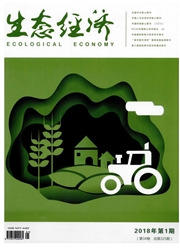

 中文摘要:
中文摘要:
近年来海绵城市已成为中国城市建设的新理念,海绵城市建设能够将城市雨水有效地收集、蓄存、利用,因而能够起到防治城市内涝和缓解城市水资源缺乏的双重作用。但是海绵城市建设也面临着资金不足、用地紧张、水体污染等方面的挑战,针对这些挑战。结合山地城市济南市的地貌、水文特点,提出了山地城市建设海绵城市的合理对策。具体对策包括:结合城市化过程的新城区建设和老城区改造进行海绵城市建设,注意灵活多样的雨水收集、蓄存方式相结合以降低海绵城市的建设成本;科学设计集、蓄水设施以防止城市雨水污染;充分利用城郊空间以破解海绵城市建设用地紧张的问题等。
 英文摘要:
英文摘要:
In recent years, sponge city has become a new idea for urban construction in China, the construction of sponge city could collect, store and reuse the rainwater fell to the ground in the urban area efficiently, and thus could play a dual role in prevent flood in the city and in relieve the scarcity of water resource in cities. But the construction of sponge city is facing the challenges such as the deficiency of finance, the scarcity of land supply and the pollution of water bodies. Aimed at these challenges, some rational countermeasures for sponge city construction has been put forward based on the terrain and geological features of Jinan City. The specific countermeasures are as follows, the construction of sponge city must be combined with the construction of new districts and the renewal of old district of a city, pay more attention to the diversity of rain water collecting, storing and using ways to reduce the cost of sponge city construction. Scientifically designing and building the rain water collecting and storing structures can prevent the rain water pollution, using the suburban area to resolve the problem of land shortage in the construction of sponge city.
 同期刊论文项目
同期刊论文项目
 同项目期刊论文
同项目期刊论文
 期刊信息
期刊信息
